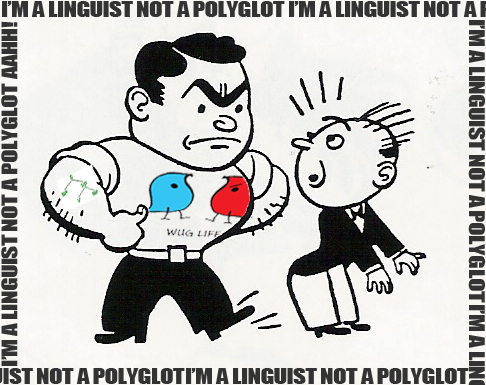No, I didn’t vote. Here’s why.
Let’s ignore for a moment the track record of the two major presidential candidates (because, really, there are pros and cons to both. If you want to argue that outlawing abortion is morally more or less justifiable than unlimited detainment without due process, well… Let’s just put that aside for now.) Let’s also ignore the inequities of the electoral college vs. popular vote and the fact that if you don’t live in a swing county of a swing state, your vote is mathematically worthless. Maybe there’s some civic value in the voting process? I dunno. Let’s even ignore that in the one election in history where there was actually a close race, all of our votes were literally worthless – thrown out as the presidency was decided by the Supreme Court (against the vote of the people, against the popular vote, against the Electoral College; Bush vs. Gore, 2000). Let’s ignore all that and focus on the core: the idea of a participatory democracy.
I didn’t vote because our current system is not, regardless of what your high school civics teacher told you, a good example of a participatory democracy.
Let’s try something. If you voted, you almost certainly voted for someone who has held office before (be it the office they were running for or another). Can you tell me the last five vote-actions they took? What were the last five yea or nays presented to them, in their previous role, and how said they? How about the last ten? How about their actual voting record, overall?
Okay, second part of the democracy game. For those of you who voted “straight ticket”… Can you name more than half of the people you voted for? Regardless of their voting record, can you name the people who you proclaimed before God and Country would best represent you, your voice, in establishing and upholding the laws of the land?
If the answer to both questions isn’t a resounding “Well, duh. Of course I can!” then… oy. ::Participatory Democracy, you’re doing it wrong.::
Participatory democracy is based on the idea that all people should have an equal voice in determining who rules over them. But foundational to that idea is first that all “people” who count as eligible voters are equally informed and educated and have an equal share in the wins and losses of the government. That’s not what we have in America these days. There’s lots of inequality all around, but let’s focus on something that each of us has mostly under our individual control: information.
Not only are people vastly under- and un-informed (did you really know how your candidate voted on recent actions, or did you have to look it up?), but the educational inequalities in the U.S. entail a level of voter inequality that would make a Founding Father blush. People haven’t even been trained in how to uncover the information, how to discern fact from fiction, how to know truth from myth. How can we expect them to parse the seas of information about candidate beliefs and public records and cast a responsible vote of confidence for anyone?
And the inequalities are at all levels… it’s not just the voters that are uninformed, but the representatives that people are voting for, too. No, I firmly do not believe that someone who doesn’t understand the difference between “climate change” and “the weather” should have a say in any laws relating to atmospheric pollutants. No, I firmly do not believe that someone who doesn’t understand the difference between a rifle and an assault weapon should not have a say in the laws pertaining them. And no, I most emphatically do not believe that someone who doesn’t understand what “e-mail” is should have any control over the FCC regulations surrounding Net Neutrality. But that’s what you’ve got right now. There’s absolutely no accountability in the process, at any level, completely obliterating the foundation that a participatory democracy requires. Under-informed voters electing uninformed politicians. In what way is that a good system of government?
“Ah, but it’s still the best system we’ve got,” you might say. First, that’s a terrible reason to keep a system in place. If we know the system is broken, then it is our duty to create a better one, not to acquiesce in sloth. And, second, historically speaking, monarchies seem to have done at least as well if not somewhat better than democracies, so… y’know. Idealism vs track record and whatnot. Maybe we should leave this a moot point and move on.
“Ah, but if you don’t vote, then you have no right to complain,” I hear some of you say. Really? This is the one that sticks hardest in my craw. There’s nothing but propaganda and false rhetoric to support it. As an idea, it’s patently wrong. You, the voter; you who keep this system in place by acceding to it– if there is one of us who can’t complain, it is you. But I won’t say that. I’m okay with you complaining. Just know what you’re complaining about. If you’re not willing to accept the responsibility of the outcome, don’t participate. The only way to win is not to play.
So, roughly said, that’s why I’m not voting. I won’t choose the lesser evil. I won’t concede to play a game where I know I’ll lose. I’m done. I demand something better. If you’re a voter, okay. I don’t understand where you’re coming from, but I won’t hold it against you. I do hope that you’re informed, though. And I hope you’re voting for informed people, not just for people with the slickest ad campaigns and best sound-bites. And I hope you continue to be informed when elections roll around next year, and the year after that, and in all the years between now and 2016, because there are local elections at some level every single year. I hope that if you’re a proud supporter of democracy, that you’re actually participating in it every chance you get. If you’re not, well…
Today I’m not voting, thoughtfully and intentionally. Absolutely not.



